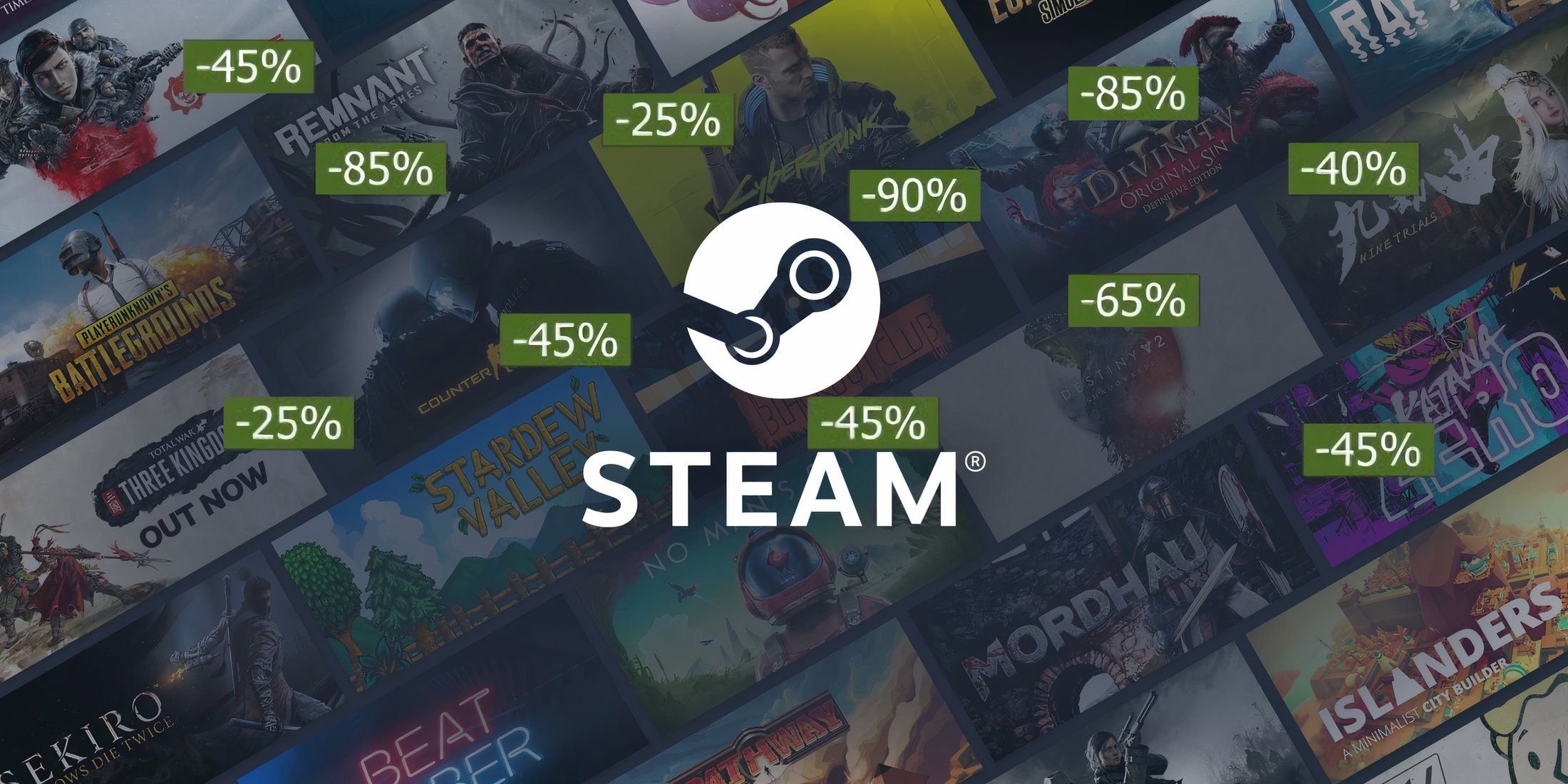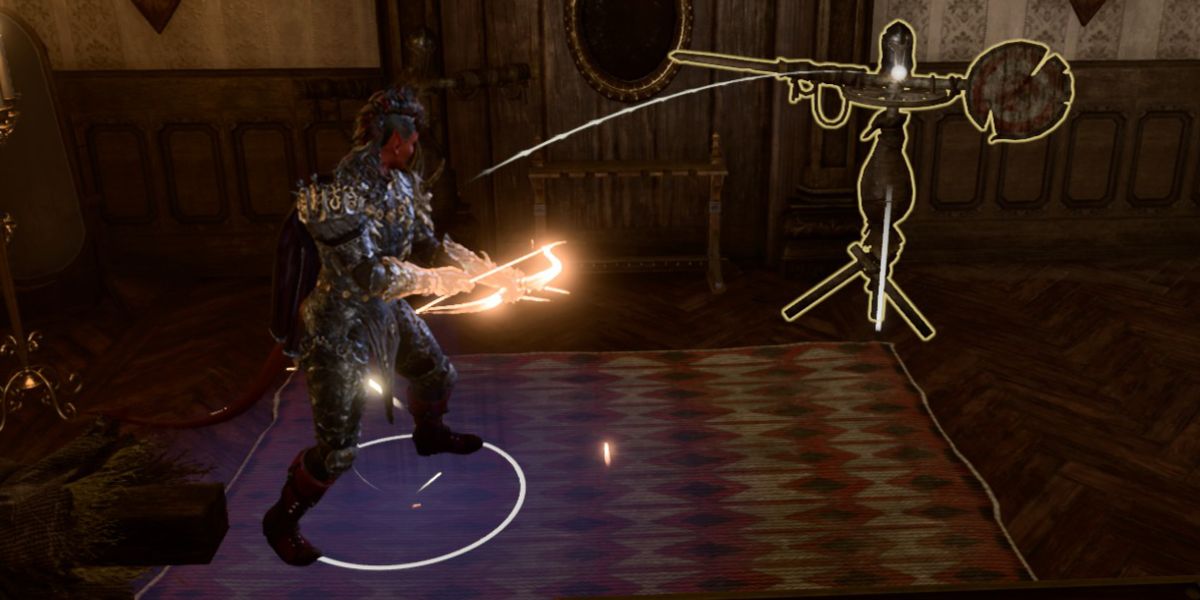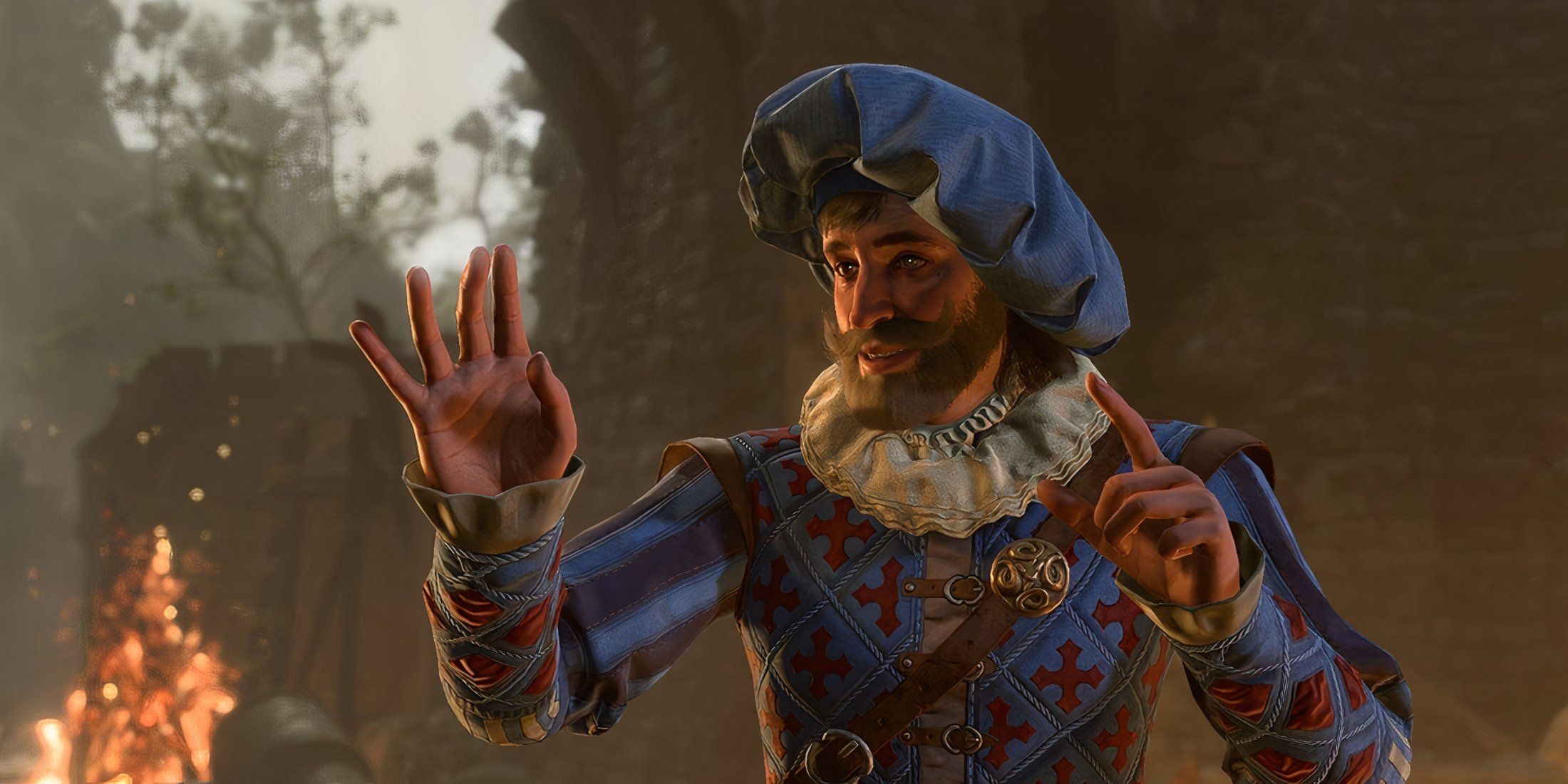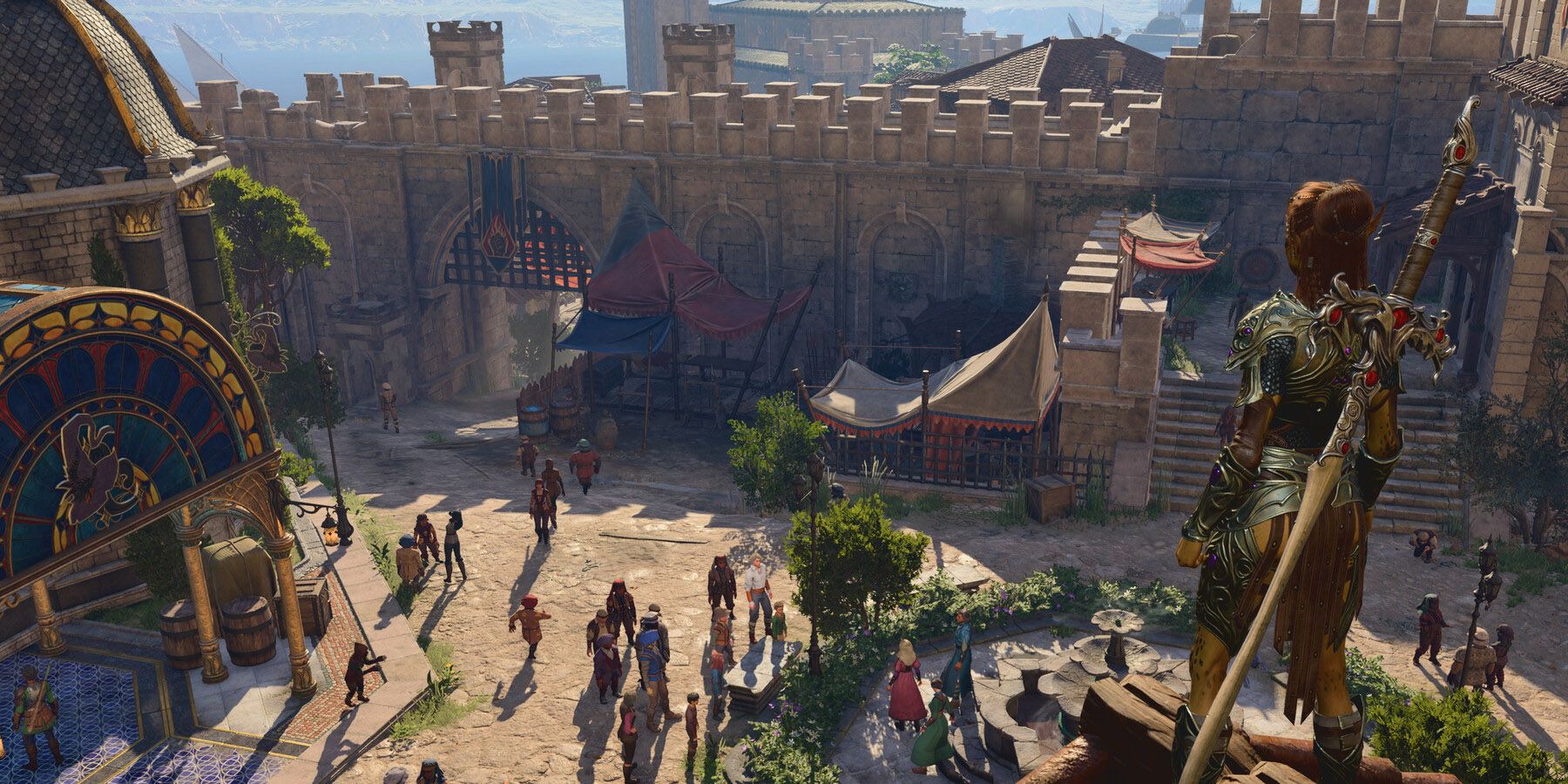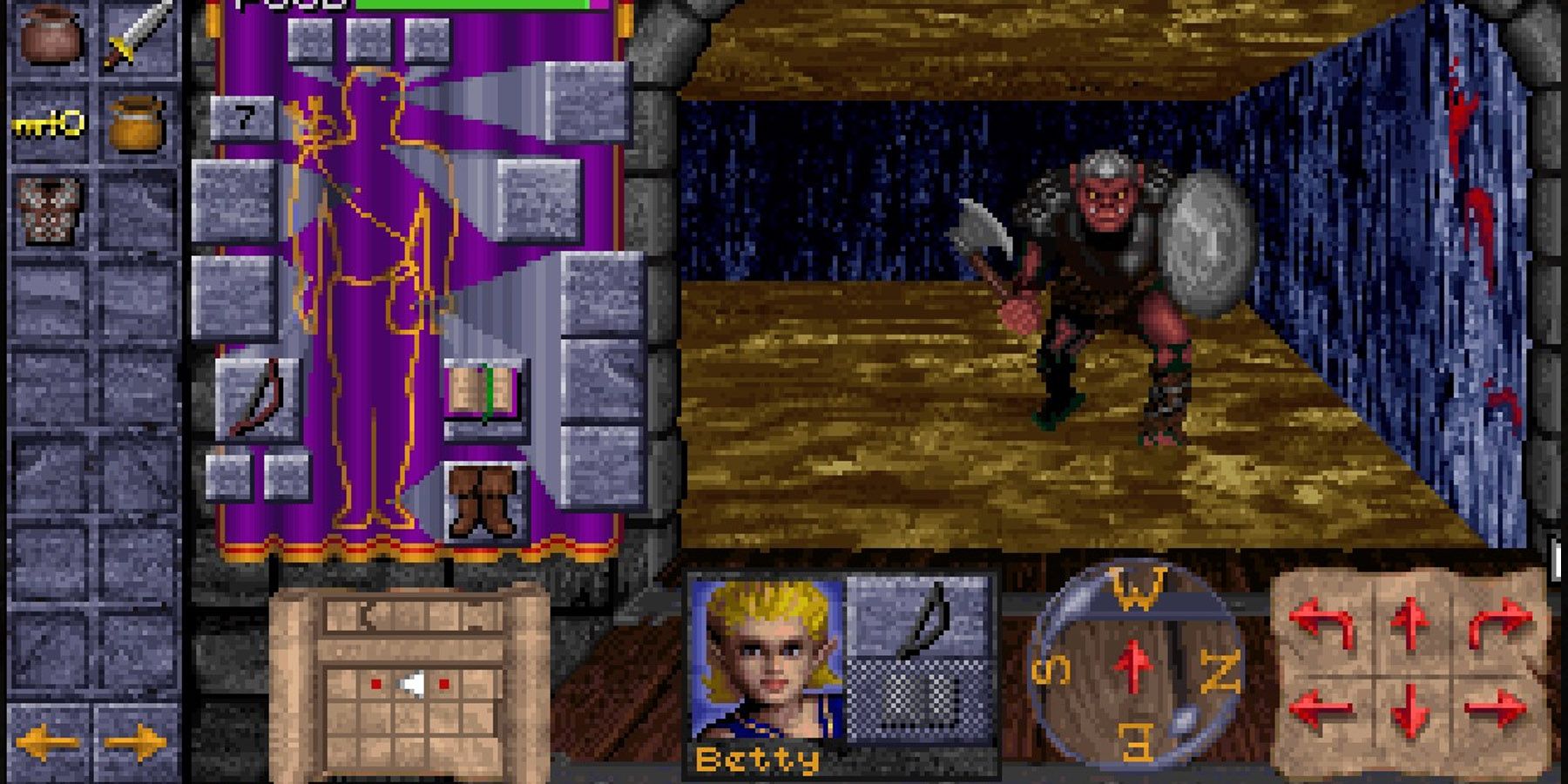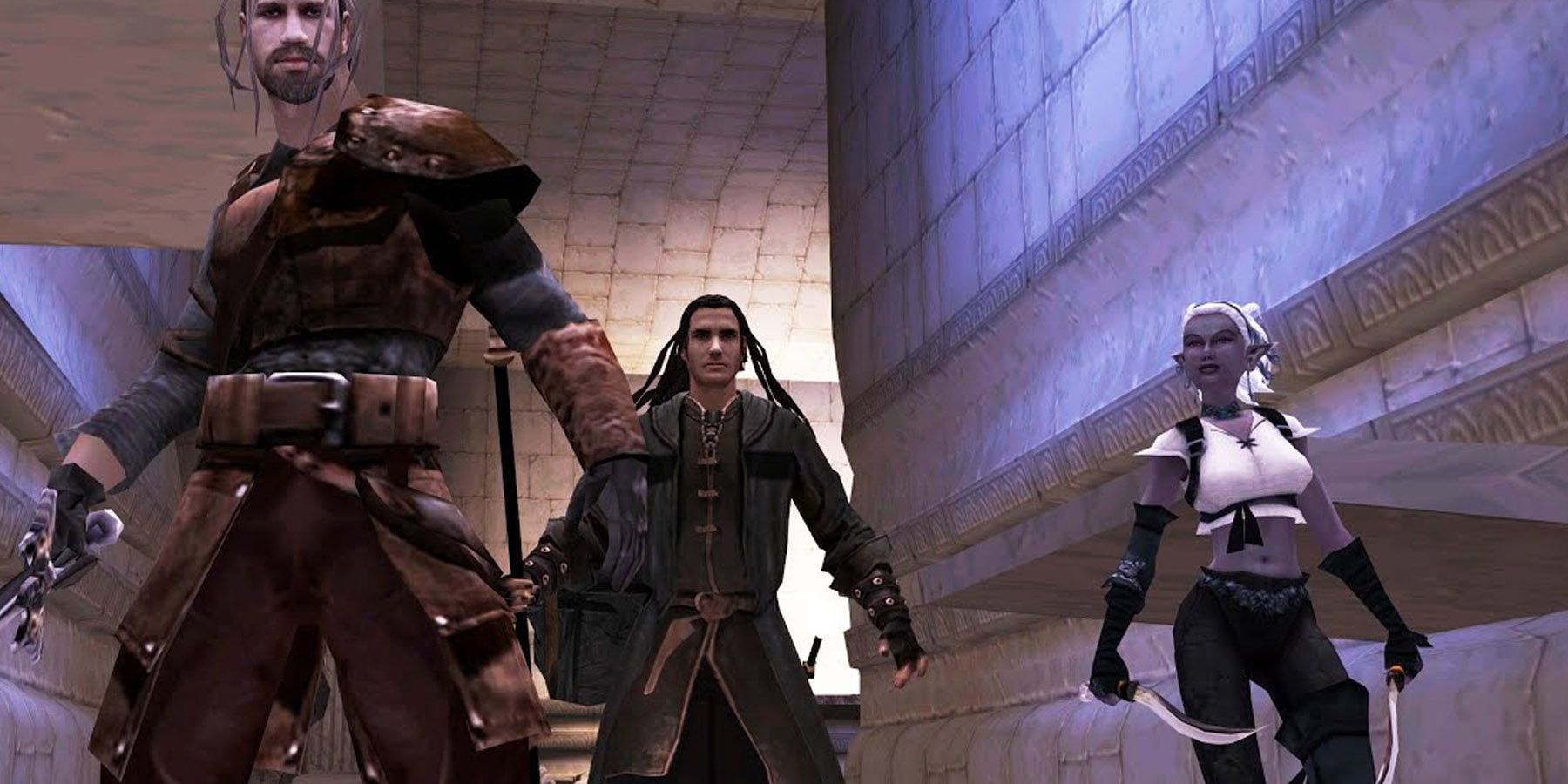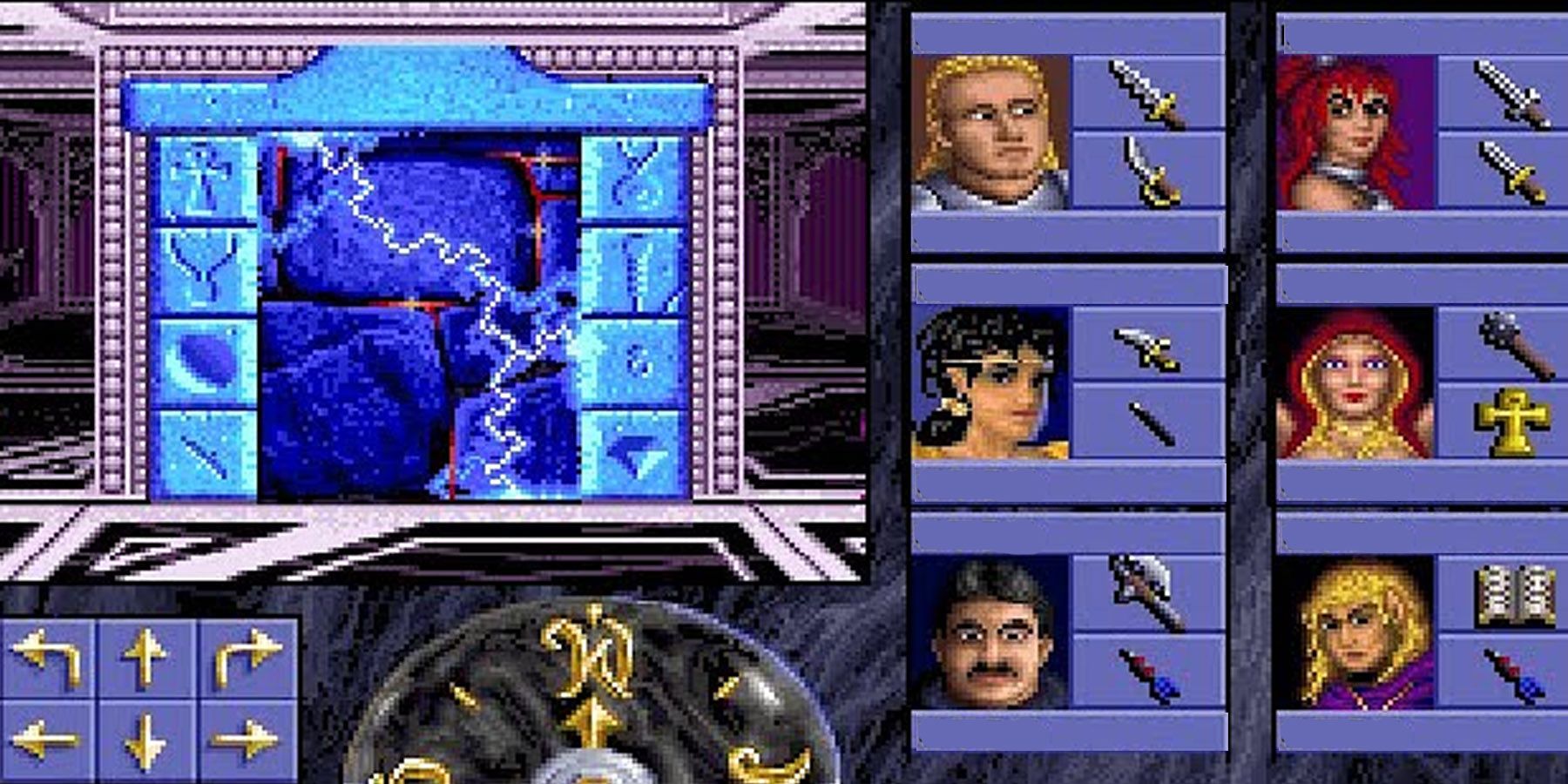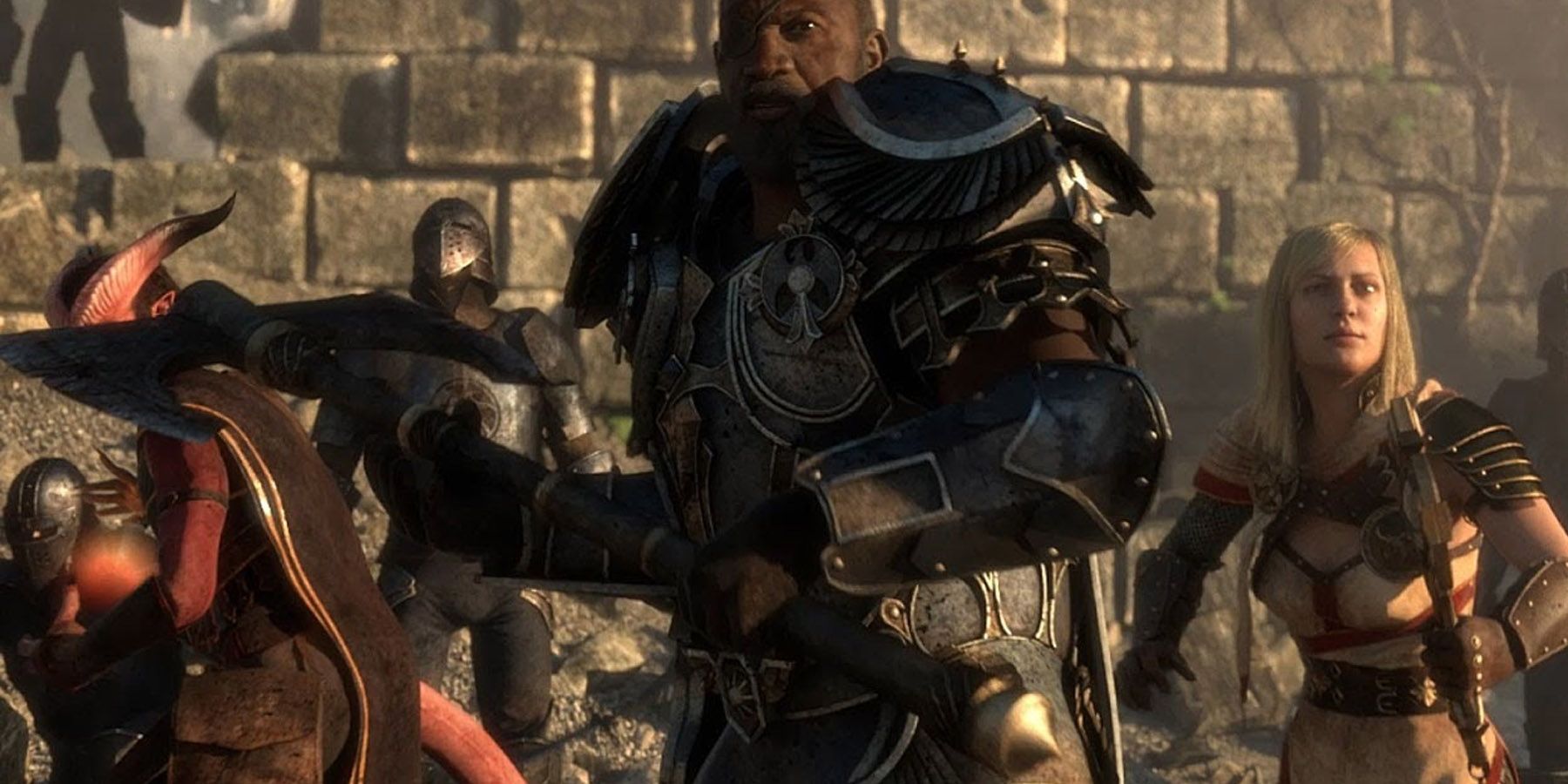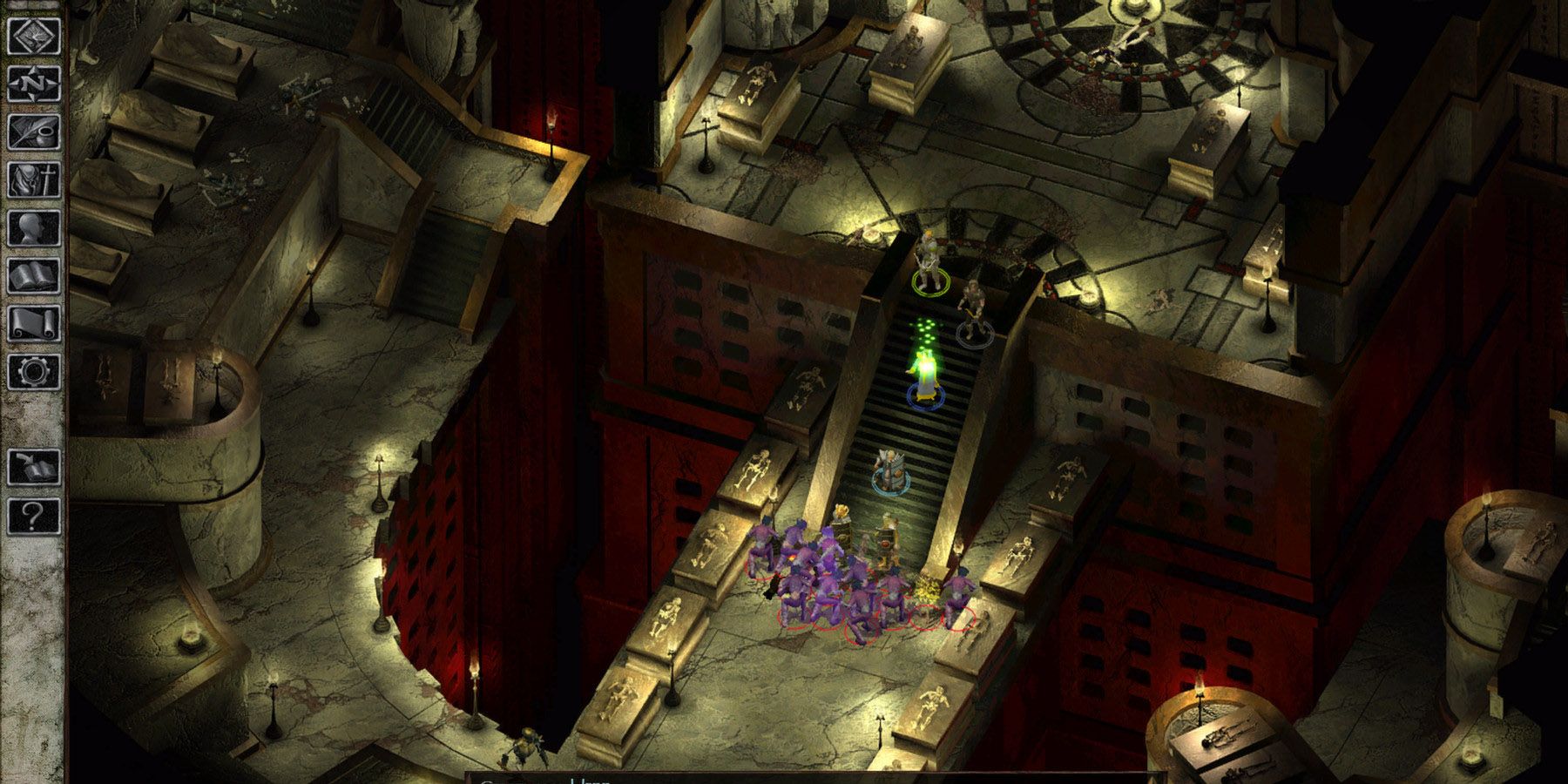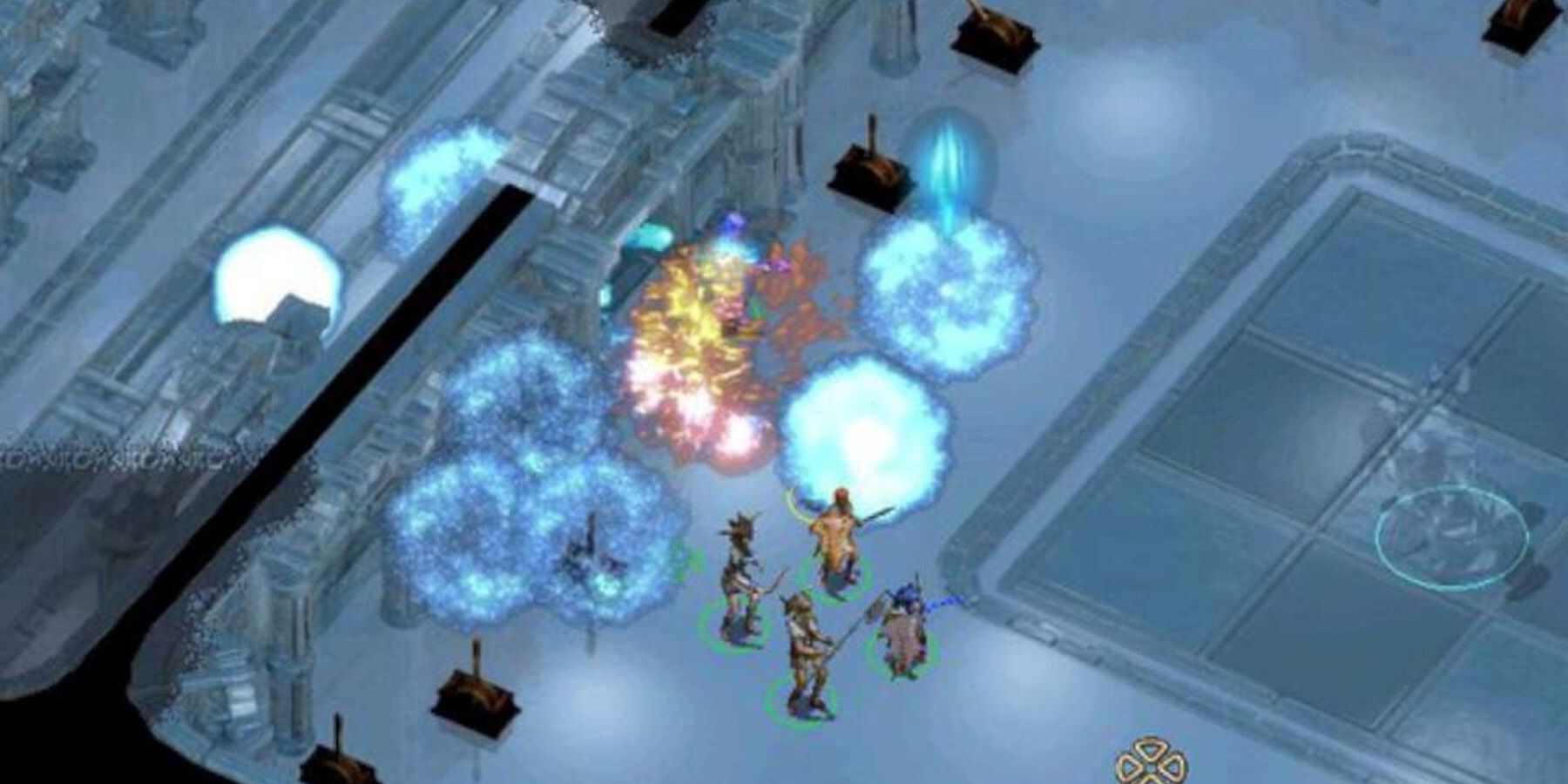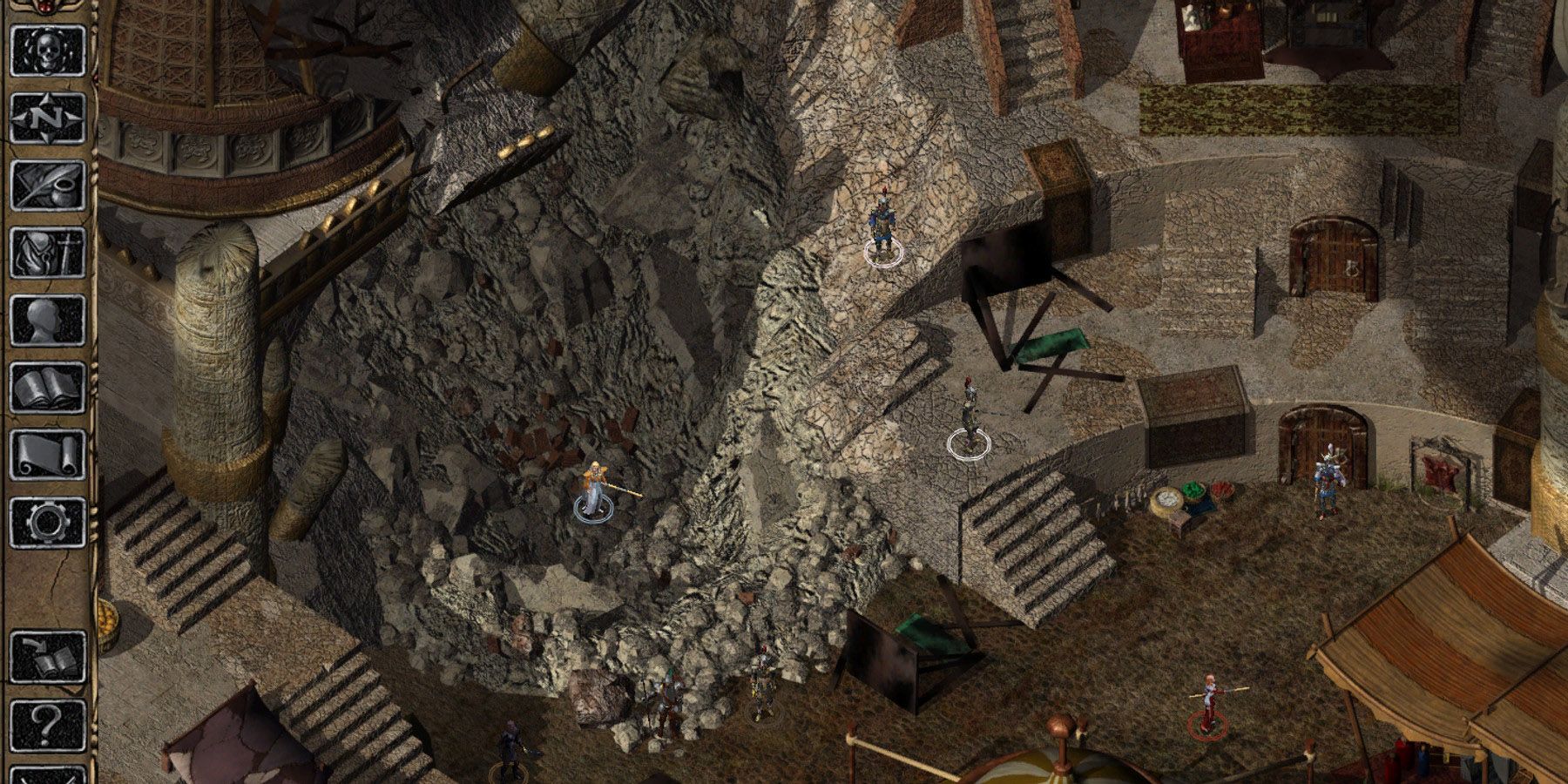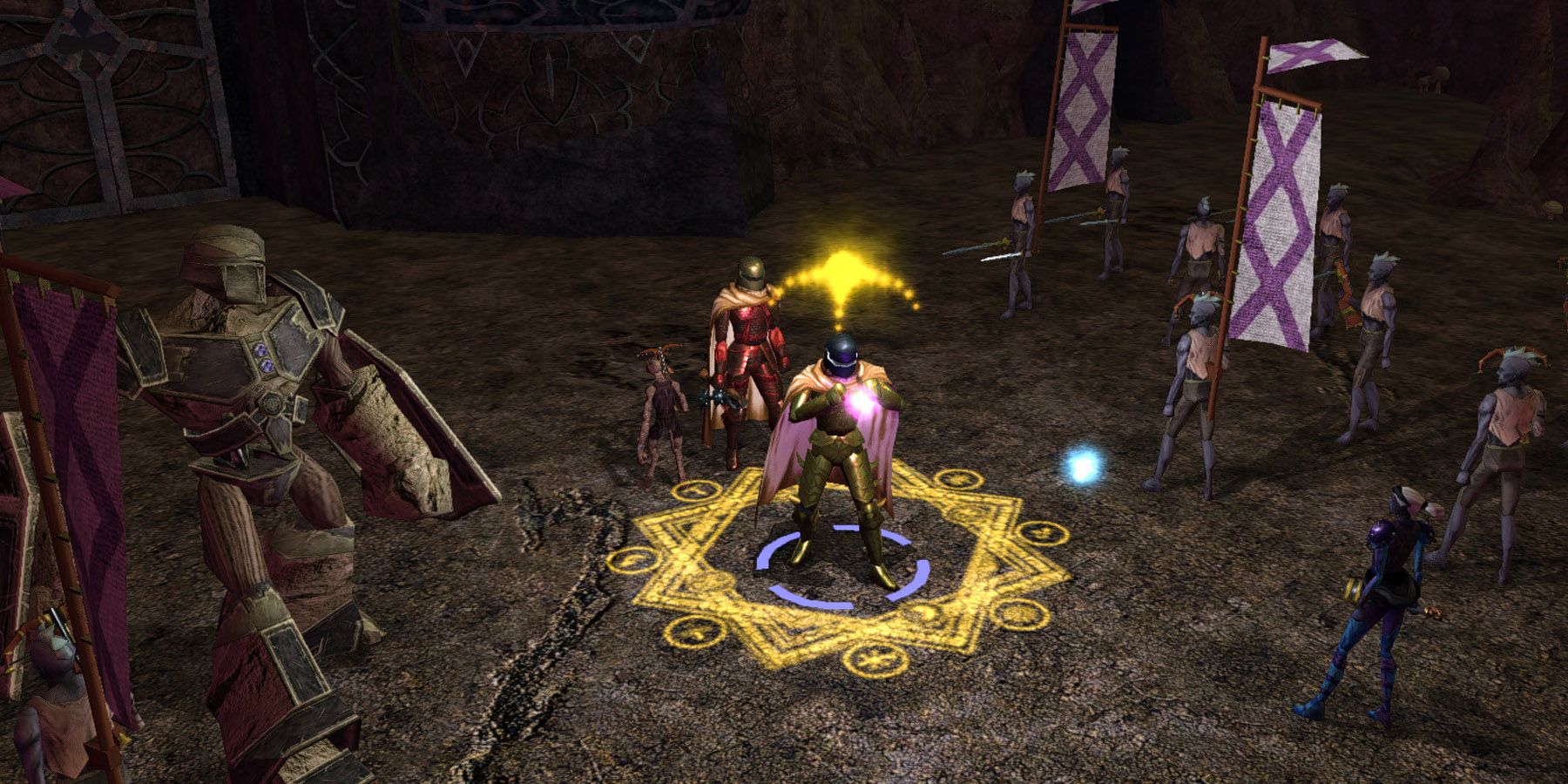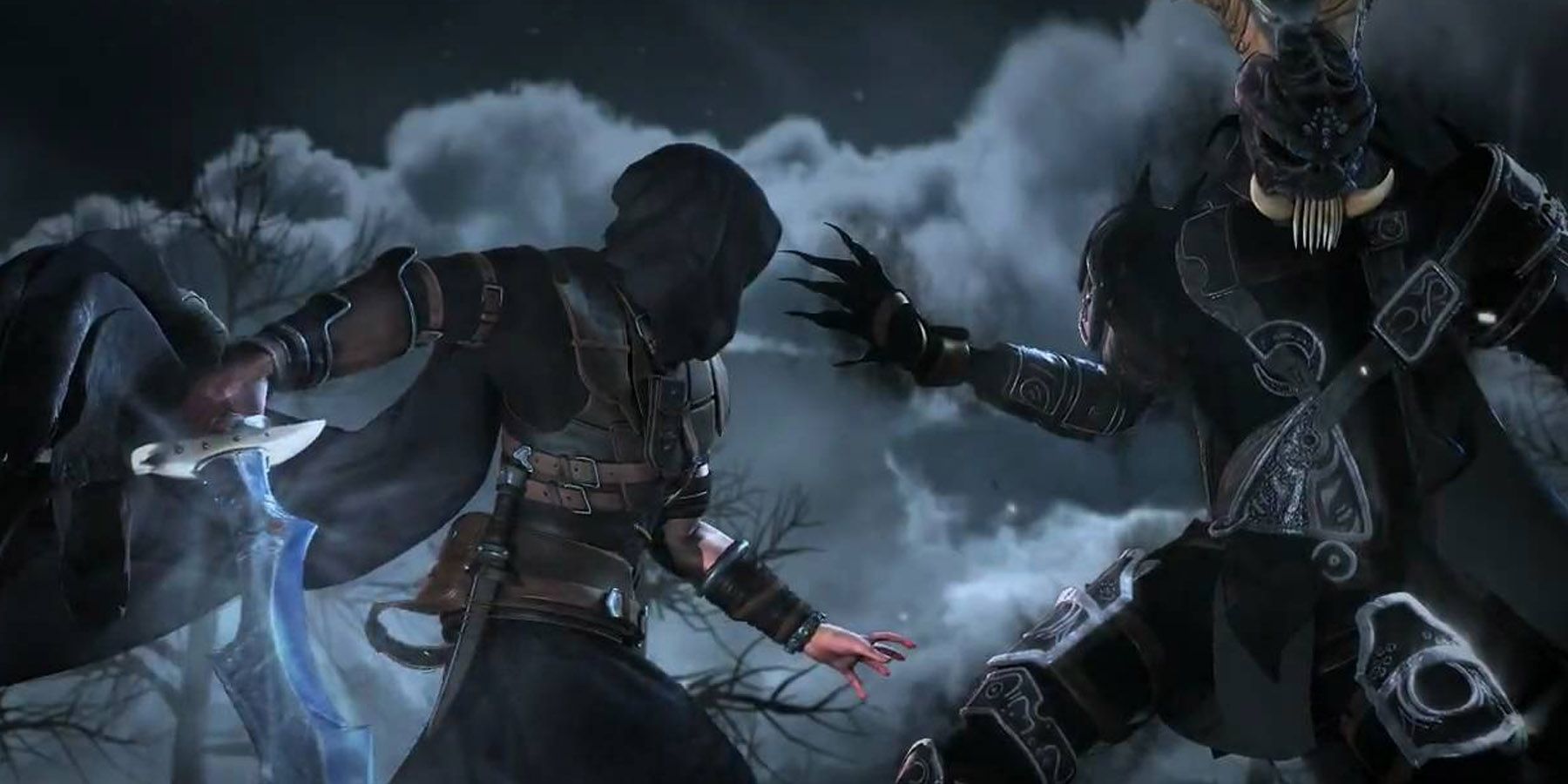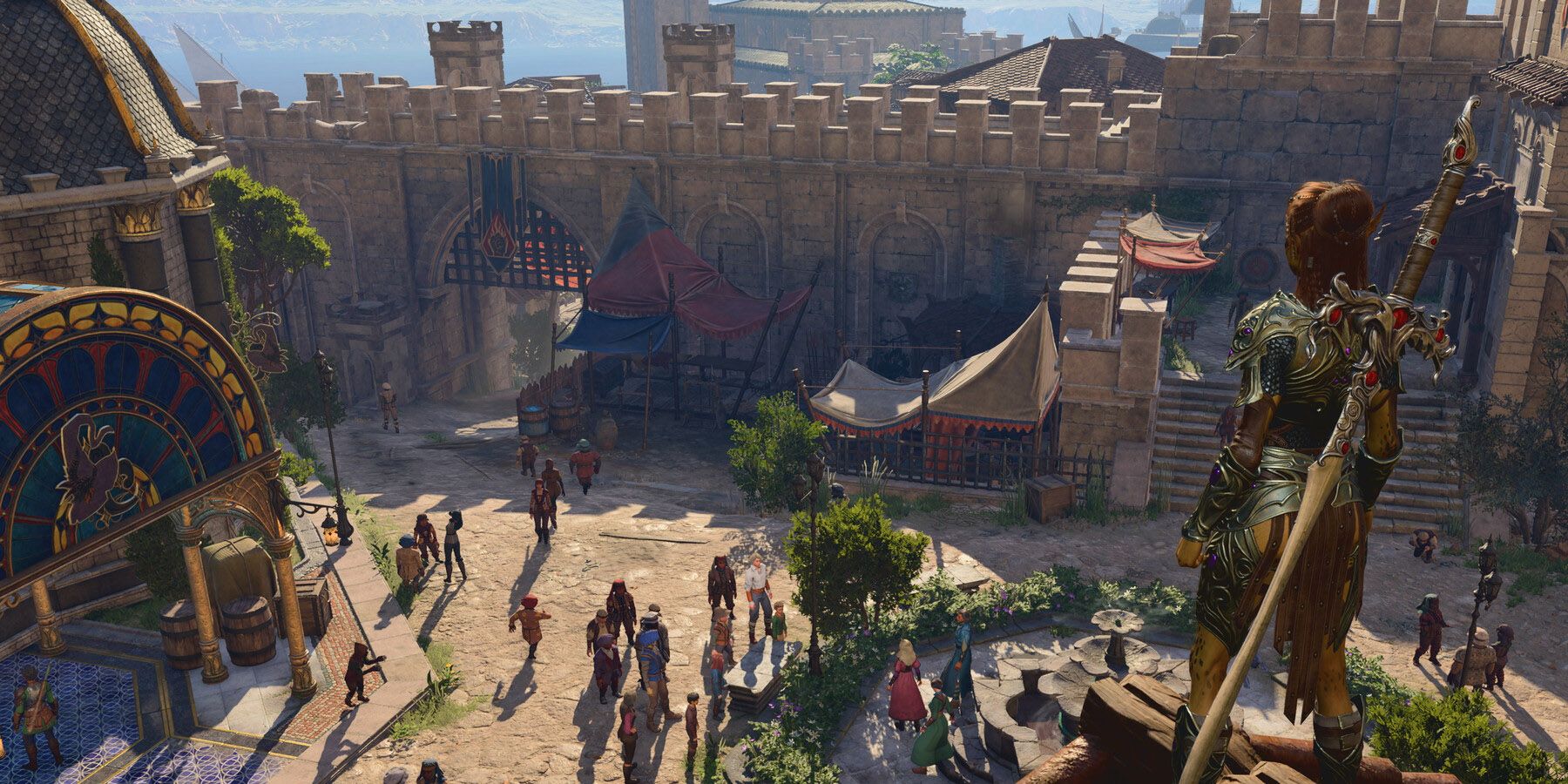Highlights
- Dungeons & Dragons fans have many game options to explore the Forgotten Realms setting, with over 50 games released so far.
- Recommended standout games include Dungeon Hack for a retro take on D&D mechanics, Forgotten Realms: Demon Stone for an action-packed experience, and Eye of the Beholder for the popularized 3D RPG concept.
- Neverwinter stands out as an action-adventure MMO with an in-depth plot, and Icewind Dale and Baldur's Gate offer challenging tactical RPG experiences with a focus on combat and character progression. Baldur's Gate 3 is acclaimed for its execution of the D&D 5e ruleset and compelling narrative.
While Baldur’s Gate 3 has Dungeons & Dragons fans return once again to Faerun for a world-saving adventure, it’s certainly not the only game to take place in this setting. Introduced as early as the AD&D 2E days of the hit TTRPG, Ed Greenwood’s Forgotten Realms grew to become one of the most popular settings of the RPG to date. Such was the appeal of the setting that it expanded far beyond sourcebooks and entered even gaming territory, coming to around 50+ games by the time BG3 was released.
With this many games under the Forgotten Realms belt, both Dungeons & Dragons newcomers and experts who want to familiarize themselves with the Realms may have difficulty choosing which games to play to encapsulate the feeling of the setting best. Thankfully, certain standouts become must-tries to get fully immersed in this setting.
10 Dungeon Hack (1993)
- Platforms: DOS, NEC PC-9801
Fans of roguelikes who want a retro take on Dungeons & Dragons mechanics should consider giving Dungeon Hack a try. Although unimpressive by modern standards in terms of its UI and overall gameplay, its adaptation of AD&D 2E rules makes it quite a change of pace from standard RPGs of the time. As expected of a roguelike, Dungeon Hack starts with a simple premise: a sorceress hires the player to retrieve an orb within an ancient dungeon.
From there, the players create a character based on the AD&D 2E ruleset while also customizing their dungeon’s main settings. It’s the latter where the game shines, as players can tweak their playthrough with various settings such as permadeath, monster density, and other factors.
9 Forgotten Realms: Demon Stone (2004)
- Platforms: PC, PS2, Xbox
Being a game scripted by acclaimed Forgotten Realms novelist R.A. Salvatore, Forgotten Realms: Demon Stone tasks three adventurers to infiltrate the Gemspark Mines and stop two powerful villains from taking over the Realms. In traditional action RPG fashion, players tear through hordes of enemies while micromanaging three combatants: the melee specialist Rannek, the rogue Zhai, and the sorcerer Illius.
Unlike other action games, Demon Stone will have all three characters on screen simultaneously, with players having free reign to switch between any of them. Despite not having the storytelling depth of typical D&D games, Demon Stone’s short-lived plot makes for an entertaining experience.
8 Eye Of The Beholder (1991)
- Platforms: Amiga, DOS, PC-98, SNES/Super Nintendo, Sega Mega-CD
Although the Eye Of The Beholder has lackluster graphics compared to more modern RPGs, its approach to what’s known as a “3D” RPG at the time popularized the notion of FPS dungeon crawlers. Set in the sewers of Waterdeep, players need to defeat Dwarf and Drow Clans alongside the Beholder Xanathar to repair the city’s sewage system.
The game’s adaptation of the AD&D 2E system was more freeform compared to the prior Dungeon Master, being a much friendlier experience to newcomers by providing a decent balance of combat and puzzle-solving. However, players need to pay close attention to their builds, as while the game doesn’t give a comprehensive tutorial, it does represent an accurate take on stats-heavy AD&D 2E rules.
7 Neverwinter (2013)
- Platforms: PC, Xbox One, PS4
Considering the lukewarm reception to most other action RPGs based on D&D, it’s quite a surprise for Neverwinter to approach the MMO scene as an action-adventure game. Unlike the more traditional tab-target MMO that is Dungeons & Dragons Online, Neverwinter takes the more action-oriented gameplay of games like Black Desert Online. Upon creating a character, Neverwinter transforms the D&D 4E ruleset into an action format, giving players access to Class Powers that facilitate fast-paced gameplay.
Where Neverwinter deserves praise is an in-depth plot, wherein the city is plunged into an impending civil war and undead invasion just years after the horrific Spellplague. On top of this main story are DLC stories that take players to other locations in the Realms, such as Icewind Dale, Chult, Sharandar, Barovia, and even Avernus.
6 Icewind Dale: Enhanced Edition (2014)
- Platforms: PC, OS X, Linux, iOS, Android, Nintendo Switch, PS4, Xbox One
Players of Icewind Dale are tasked by the archdruid of Kuldahar to investigate why the warming powers of the Great Oak has been weakening over time, slowly injecting cold in the harsh region of Icewind Dale. Unlike other RPGs emphasizing story, Icewind Dale emphasizes party hyper-optimization to eliminate threat after threat.
Adapting the AD&D system, Icewind Dale has a balanced but challenging gameplay loop to learn. Players create their party of six on the onset, with options ranging from presets, imports from other games such as Baldur’s Gate, and even their creations. Gamers who enjoy challenging tactical RPG combat can relish in Icewind Dale and its Enhanced Edition, as its learning curve is akin to mastering Dark Souls but for turn-based fights.
5 Icewind Dale 2 (2002)
- Platforms: PC
Set three decades after the events of the first game, Icewind Dale 2 tasks players to control a group of mercenaries to facilitate a defense for the harbor town of Targos against a goblin army. Upon discovering the army’s ties to the Legion of the Chimera, the player’s party has to travel across Icewind Dale to get to the root of their sudden invasion.
While Icewind Dale focuses heavily on D&D’s combat aspect, the more reserved pacing and a revamped interpretation of D&D 3E rules made Icewind Dale 2 a more solid RPG experience. Unfortunately, the outdated graphics and engine used in the game made it seem lackluster compared to rivaling RPGs such as The Elder Scrolls 3: Morrowind.
4 Baldur’s Gate 2: Enhanced Edition (2013)
- Platforms: PC, OS X, Linux, iOS, Android, Nintendo Switch, PS4, Xbox One
Despite critical acclaim over Baldur’s Gate, it’s Baldur’s Gate 2 and its eventual Enhanced Edition that encapsulates a classic D&D experience. Resuming the Bhaalspawn Saga, players retain the status as Gorion’s Ward, whose status as the offspring of the God of Murder put them on the radar of the evil mage Jon Irenicus. What sets Baldur’s Gate 2 apart from its predecessor is a better grasp of its game engine and a more strategic take on character progression.
Players begin the game as at least Level 8 adventurers, giving them immediate access to powerful abilities that tie into more challenging fights at the onset of the experience. Companions and NPCs also offer equally compelling side quests beyond the main story, encouraging hours’ worth of gameplay and tinkering around the game world.
3 Neverwinter Nights: Enhanced Edition (2018)
- Platforms: PC, iOS, Android
Back in the time when D&D 3E was a much-needed departure from the number-crunching rules of AD&D 2E, Neverwinter Nights and its eventual Enhanced Edition offered one of the best D&D adaptations for both RPG fans and newcomers. Set in the city-state of Neverwinter, players are tasked to create a cure for the Wailing Death plaguing the city. Neverwinter Nights offers a gripping narrative that extends its appeal through a multiplayer mode and a modular component.
With the Aurora engine, Neverwinter Nights allows players to create their campaigns and take on the helm of Dungeon Master to supervise multiplayer gameplay. Unlike “classics” at the time, such as Baldur’s Gate, the more updated ruleset provides players access to more opportunities for character customization without confusing stats.
2 Neverwinter Nights 2 (2008)
- PC, Mac OS X
Unlike other sequels that merely follow up their predecessor’s story, Neverwinter Nights 2 has provided a graphical enhancement and a more streamlined take on adapting the D&D 3.5E ruleset. Again, set in Neverwinter, players must gather mysterious “Silver Shards” to solve a crisis involving an evil spirit known as the King of Shadows.
Compared to Baldur’s Gate 3, the appeal of Neverwinter Nights 2 lies in its quality-of-life features and added mechanics. The game adapts the notion of Prestige Classes from D&D 3.5E, giving players access to special classes upon meeting special requirements. NW2 also has a base-building system unlike the original Neverwinter Nights title, wherein players acquire a keep they slowly improve and protect from sieges and even populate with NPCs.
1 Baldur’s Gate 3 (2023)
- Platforms: PC, PS5, Xbox Series X/S
It’s in the execution of a video gamified D&D 5e ruleset on top of a compelling narrative that makes Baldur’s Gate 3 a critically acclaimed title at launch. Set in the world of Faerun, Baldur’s Gate 3 follows a Mindflayer invasion and how Illithid-infected protagonists are on a race against time to ensure they don’t become Mindflayers themselves.
Created by the minds that brought equally acclaimed Divinity: Original Sin 2, Larian Studios combines its signature interactive environments with the diverse toolkit of D&D 5e. This combination results in the best interpretation of D&D rules in a video game. On top of an accurate take on character progression from Levels 1 to 12 are game-compatible interpretations of Feats, Features, and Spells. The game also boasts seamless variations on concepts such as active and passive Skill Checks and Skills actively affecting dialogue and exploration.
Baldur’s Gate 3 was released in the PC and the PS5, with an upcoming Xbox Series X/S port.

